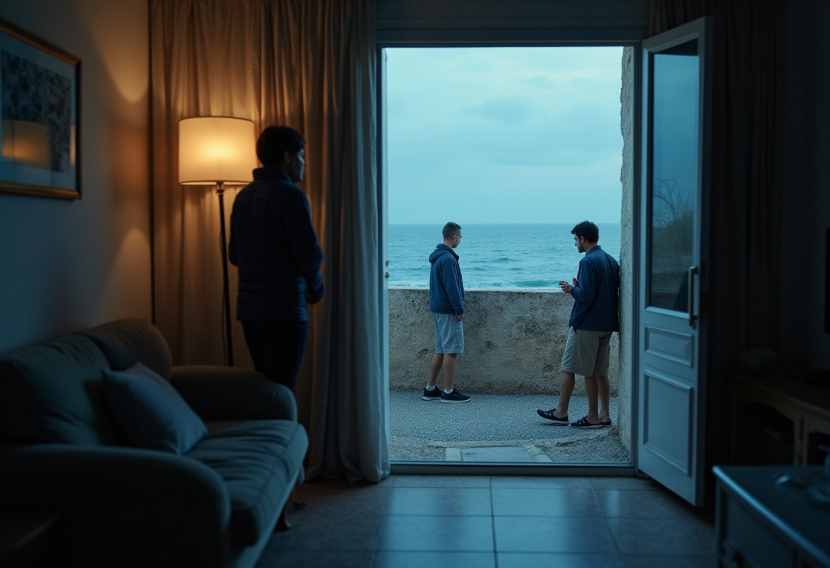≡-Strong Earthquake Shakes Málaga And Almería: Tourists In Southern Spain Feel Tremors – Viral of Today
<> Viral of Today <>
Home » TRAVEL ALERT » Strong Earthquake Shakes Málaga And Almería: Tourists In Southern Spain Feel Tremors Monday, July 14, 2025Southern Spain Shaken by 5.5-Magnitude Earthquake, Residents and Tourists React in SurpriseTourists and residents in Spanish resort regions, like Almería and Málaga, were awakened early today in an earthquake that registered 5.5 magnitude.At about 7:00 AM today, a 5.5-earthquake hit southern Spain, sending trembles in various most visited tourist regions, most significantly in Málaga and Almería. Trembling, for a couple of seconds, was felt in over 50 cities and towns, among them Vélez-Málaga, Torre del Mar, Granada, and coastal cities Roquetas de Mar and Almería.Earthquake Impact on Southern SpainThe quake struck at an estimated depth of around 10 kilometers (6.2 miles), and the epicenter was roughly 21 kilometers (13.2 miles) from tourist and local favorite Parque Natural de Cabo de Gata’s fishing village, San José. The shaking was remarkably violent in Torre del Mar and Vélez-Málaga towns, and even resort cities like Almería, which is well known for beaches and tourist attractions, was severely rocked.Many residents and tourists took Twitter to recount their shock, telling stories of confusion and panic. “The whole house was shaking,” said a resident in Almería. One tourist in Agua Amarga, a village in Almería province, encapsulated the impact of the quake thus: “I was lying down, and the whole house was shaking for about a couple of seconds. There was an immense roar. It woke me and all my relatives as well as people in the adjacent complex.” That “roar,” as the majority described, was the deafening noise of the earthquake activity shaking through the region, which was an ingredient in the bizarre atmosphere.And for the Spanish resort area Roquetas de Mar, which is quite famously popular for British tourists, it was hit hard too. The tourist, who was in a hotel room, was able to explain the sensation, stating, “In Roquetas de Mar, it was very noticeable, and it was for a few seconds—the whole hotel room was shaking.” There were the same accounts on social media from additional tourists, as they were in shock about the unexpected shaking, which was said to be a “surprisingly long” shake.Geologic Description of the EarthquakeSeismic recordings showed that the epicenter was in the area around Parque Natural de Cabo de Gata, which is as famous for natural beauty as for tourist activity. The relatively shallow depth of 10 kilometers for the earthquake showed that the earthquake struck a broader area, largely coastal areas and towns around the area of the epicenter. The tremor was typical for ongoing movements in the region, as the Spanish National Geographic Institute (IGN) commented, even though historic earthquakes of such a magnitude are relatively infrequent for southern Spain.There was no substantial aftershock to follow the earthquake, but the shaking was reportedly experienced as far as Alicante, Murcia, Jaen, and Granada. The port city of Almería even experienced quite heavy shaking, which raised speculation about shaking in the area for days to come.Spain, and the area of Andalusia, is not immune to earthquakes, as is evident from the 1884 Andalusian earthquake which struck near the area, inflicting a lot of damage. Minor earthquakes have been registered in the area in contemporary times, for instance, a 4.3 magnitude earthquake which struck the Axarquía area in March 2024.Public Reaction and WarningThe Spanish authorities cautioned tourists as well as local residents to be on their guard following the earthquake. Although no severe damage to buildings or infrastructure was yet confirmed, the rescue teams are on stand-by. The regional administration in Andalusia appealed for all people to observe normal safety precautions against aftershocks.Tourists are also urged to keep informed via official news channels. Local governments in Málaga, Almería, and Granada together with rescue groups assessed damage done on infrastructure and buildings caused by the earthquake. There are no initial reports of injury, but the region remains under tight observation.Impact on Tourism: The Impact on Traveling IndividualsSouthern Spanish tourism is a central element in the region’s economy. The cities in Málaga, Almería, and Axarquía region’s towns around them attract millions of tourists every year, primarily from the United Kingdom. The earthquake was a subject of concern across the globe for tourists, but the disaster even raised questions about visiting tourist hotspots following a natural disaster.The tremor put some people off visiting, but tourist impact as a whole is still likely to be short-lived. Locally-run hotels, in particular, reassured tourists that visiting the destination is still fine, as seisms like this are not unprecedented. Tourists planning on visiting regions such as these are advised to remain calm and to adhere fully to official safety recommendations.One hotel manager in Málaga commented, “We are doing all we can to be prepared in case our guests need our assistance. There is no serious damage, and tourist activity is normal.”It’s a Wake-Up Call for PreparednessTo everyone, today’s earthquake is a timely alarm that natural catastrophes are unexpected. Even though southern Spain is not quite used to normal earthquakes as big as today, the region is not exempted because it is relatively close to tectonic fault lines. As unexpected, experts advise people to be on their toes and ready as residents and tourists.Seismic readiness consciousness campaigns are set to be launched in the area, most prominently in areas visited by tourists like Málaga and Almería. Government agencies are interested in getting both tourists and residents prepared in the unlikely event that they do receive a large earthquake in the not too distant future.Conclusion:The Day of Tourism Reflection in Southern Spain As the area calms down after today’s earthquake, everyone is getting a chance to reassess the importance of safety in the face of nature’s disaster. While today’s shaking was intimidating, the earthquake hasn’t been extremely destructive, and local authorities promptly adopted tourist and resident safety measures. As millions keep each year visiting south Spain, such events are even important in balancing safety, preparedness, and tourism. For the time being, the area’s natural sceneries, heritage, and climate are as attractive as ever, and tourism is on track to continue in full throttle.For foreign tourists in the region, the experience was a lesson in the uncertainty of travel and worth of knowledge and preparedness.Tags: Agua Amarga, Albacete, Alicante, Almería, Almería earthquake, Andalucía, andalusia, Axarquía region, Cabo de Gata, earthquake news, Granada, Jaén, Málaga, Málaga tremor, Murcia, Roquetas de Mar, San José, spain, Spain earthquake, Torre del Mar, Vélez-Málaga
This information will surprise you!
See also
- Read until the end to discover everything.
- Important information you need to know.
- Interesting facts and helpful tips.
Conclusion
Did you enjoy the news? Keep following us daily!













